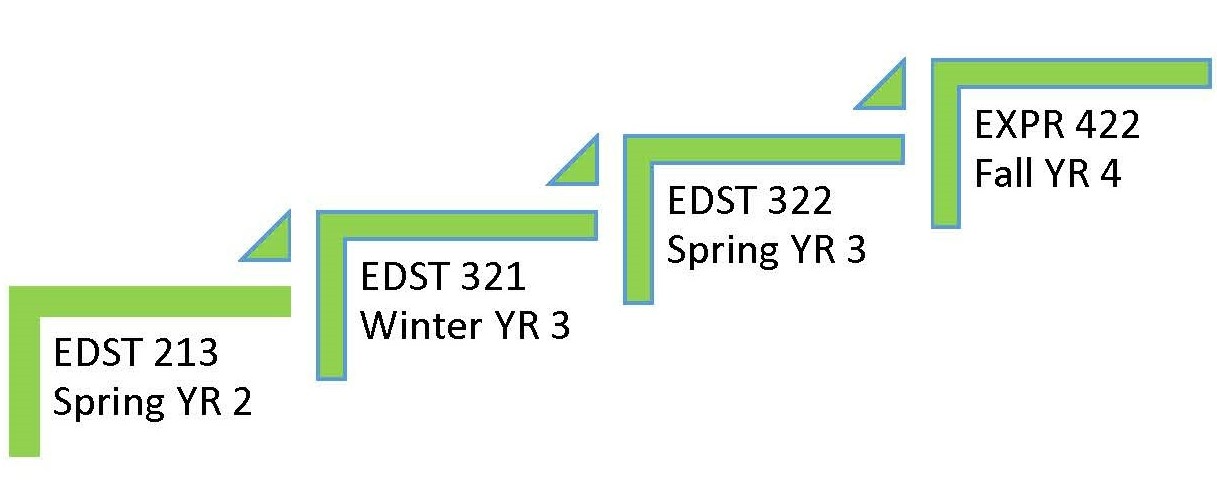Field Experiences Overview
The Field Experience Process

For most students enrolled in the College of Education, the program includes four important field practicums – EDST 213, EDST 321, EDST 322, and a 16 week Extended Practicum EXPR 422. These field practicums provide teacher candidates the opportunity to develop their professional identities, connect pedagogical theory and practice, and gain valuable hands-on teaching experience.
During field practicums, partner schools are teacher candidates' professional homes where teacher candidates learn about teaching and learning by collaborating with teachers to enhance student learning.
During field practicums teacher candidates
- Deepen professional understandings by actively participating in the life of the school through a wide range of activities.
- Deepen their ability to engage with students, colleagues, parents and administrators.
- Increase awareness of broader perspectives on education and the community and the school in society.
- Further develop their professional identities, gain insight into the realities of classroom teaching and evaluate their career choice.
Policies and Funding
The Janet Johnston Trust Fund was set up from the estate of alumna and retired College of Education Professor Dr. Janet Johnston in 2010 to support rural field experience placements. Dr. Johnston (BEd'62, MEd'72) served for 12 years as the Director of Field Experiences in the college and was responsible for placing hundreds of student teachers and interns in the schools of Northern Saskatchewan and overseeing their supervision. She believed that potential teaching ability was enhanced by actual experiences in schools, interacting with students, teachers and administrators, while experiencing supervision from the college. She recruited, trained and led a small group of skilled supervisors, who worked very closely together with directors, principals and teachers in the field to ensure that teacher candidates were provided with opportunities for valuable experiences. The Janet Johnston Trust Fund continues her legacy of excellence in rural and experiential education.
Professionalism
Students in the College of Education aspire to high standards of professional practice and ethical conduct. Procedures for students with academic program concerns are designed to honour core principles of respect, inclusivity, integrity, and responsibility.
The Field Experiences accommodation plan at the College of Education has been developed to support students registered with AES (Access & Equity Services) during all of their Field Experience courses (practicums). It is an extension of the plan developed by AES and focuses on accommodating teacher candidates that are in the schools.
Please make an appointment with the Field Experience team to develop your plan. It is beneficial to make an appointment prior to your field experience course so the accommodation is completed before your time in the schools.
- Please contact Jennifer Amy (jennifer.amy@usask.ca) to set up an appointment.
Teacher Education programs are responsible to society for providing courses of study that support Teacher Candidates in developing the professional, knowledge, instructional, and curricular competencies necessary for provincial teacher certification as well as to support best practices for teaching and learning in a changing world.
The College of Education welcomes diversity, as well as teamwork towards appropriate supports, in order that Teacher Candidates demonstrate the necessary Teaching Competencies identified by Saskatchewan’s Teacher Education, Classification and Certification Board (Appendix A). Competency standards for teachers are described further in the document Teacher Professionalism: A Public Trust (www.stf.sk.ca).

